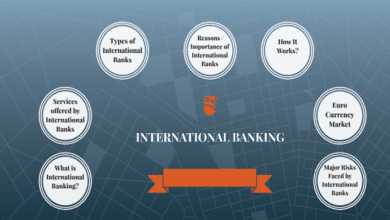Wheon.com Finance Tips – The Ultimate Guide to All Information Smart Money Management 2025

Introduction to Wheon.com Finance Tips
Wheon.com finance tips Managing money wisely is essential for achieving financial stability and long-term success. Many people struggle with financial planning, budgeting, and investing due to a lack of knowledge and proper guidance. Wheon.com finance tips provide valuable insights to help individuals take control of their financial future. Whether you are looking to improve your savings, reduce debt, or explore new investment opportunities, having a well-structured financial plan can make a significant difference.
Wheon.com finance tips literacy is crucial in today’s fast-paced world, where economic uncertainties can impact individuals and families. There make1m.com Understanding basic financial concepts such as budgeting, investing, and debt management ensures better decision-making. By following expert advice and proven strategies, individuals can enhance their financial health and work towards a secure future.
One of the key aspects of Wheon.com finance tips management is developing smart spending habits. Overspending, accumulating unnecessary debt, and failing to save can lead to financial difficulties. Wheon.com finance tips emphasize the importance of disciplined money management to avoid common financial pitfalls. By adopting simple yet effective financial strategies, anyone can build a stable financial foundation.
Another important factor is setting clear financial goals. Whether it’s saving for a home, preparing for retirement, or building wealth through investments, having a structured plan is essential. Financial success doesn’t happen overnight, but with the right approach and commitment, achieving long-term financial security is possible. By following Wheon.com finance tips, individuals can gain valuable knowledge and make informed financial decisions that lead to prosperity.
Importance of Financial Planning
Financial planning is the process of managing money effectively to achieve personal and professional goals. Without a solid financial plan, it is easy to lose track of spending and savings, leading to financial instability. Proper Wheon.com finance tips planning helps individuals understand their current financial situation, set realistic goals, and create a roadmap for the future.
A well-structured financial plan allows individuals to allocate their income wisely, ensuring that essential expenses are covered while still saving for the future. It also helps in preparing for unexpected financial emergencies, reducing stress and financial insecurity. People who plan their finances are more likely to achieve their long-term goals and maintain financial stability.
Financial planning is not just about saving money; it also involves investing wisely to grow wealth. By diversifying investments, individuals can generate passive income and build a strong financial portfolio. Planning finances effectively also ensures that debts are managed properly, preventing financial burdens in the future.
Another key aspect of financial planning is retirement preparation. Many people neglect saving for retirement, leading to Wheon.com finance tips difficulties later in life. Starting early and consistently contributing to a retirement fund ensures a comfortable post-retirement life. By incorporating smart financial strategies, individuals can enjoy financial freedom and achieve their long-term objectives.
Benefits of Financial Planning
Financial planning offers several advantages, helping individuals make better financial decisions and secure their future. One of the primary benefits is improved money management. With a clear financial plan, individuals can track their income and expenses, preventing unnecessary spending and ensuring that savings goals are met.
Another major benefit is financial security. Having a structured financial plan ensures that individuals are prepared for emergencies such as medical expenses, job loss, or unexpected bills. This reduces financial stress and allows for better handling of unforeseen circumstances.
Wealth accumulation is another key advantage of Wheon.com finance tips planning. By setting financial goals and making strategic investments, individuals can build wealth over time. Investing in stocks, real estate, and other financial instruments provides long-term financial growth.
Financial planning also ensures debt management. Many individuals struggle with loans and credit card debt due to poor financial habits. By following a structured financial plan, debt can be reduced and eventually eliminated. This leads to improved financial stability and peace of mind.
Another benefit is better retirement planning. A well-planned financial strategy helps individuals save consistently for retirement, ensuring a stress-free post-retirement life. People who start saving early and invest in retirement funds are more likely to enjoy financial freedom in their later years.
Lastly, Wheon.com finance tips planning helps in achieving life goals such as buying a home, funding education, or starting a business. With proper financial management, individuals can allocate resources efficiently and turn their dreams into reality.
Budgeting Techniques for Better Money Management
Budgeting is one of the most effective ways to manage finances efficiently. It involves creating a spending plan that ensures money is allocated correctly to essential expenses, savings, and investments. Without a proper budget, individuals often overspend and struggle to meet their Wheon.com finance tips goals.
One of the most popular budgeting techniques is the 50/30/20 rule. This method divides income into three categories: 50% for necessities like rent and groceries, 30% for discretionary spending, and 20% for savings and investments. This approach helps individuals balance their finances effectively.
Another effective budgeting method is zero-based budgeting. In this approach, every dollar is assigned a specific purpose, ensuring that no money is wasted. By tracking income and expenses, individuals can identify areas where they can cut costs and increase savings.
The envelope system is also a popular budgeting technique. This method involves dividing cash into different envelopes labeled with spending categories such as food, entertainment, and utilities. Once an envelope is empty, no more spending is allowed in that category, helping individuals control their expenses.
Using budgeting apps can also simplify money management. Apps like Mint, YNAB (You Need a Budget), and PocketGuard help individuals track their spending, set Wheon.com finance tips goals, and monitor their progress.
Having a well-planned budget ensures that financial goals are met while avoiding unnecessary expenses. People who follow budgeting techniques are more likely to save money, reduce debt, and build financial security.
Effective Saving Strategies
Saving money is essential for financial security and achieving long-term goals. However, many people struggle with saving due to poor financial habits and lack of discipline. Developing effective saving strategies helps individuals build a strong financial foundation and prepare for the future.
One of the best saving strategies is automating savings. Setting up automatic transfers to a savings account ensures that money is saved before it is spent. This method helps individuals stay consistent with their savings goals.
Another effective strategy is cutting unnecessary expenses. Reviewing monthly expenses and identifying areas where money can be saved can significantly increase savings. Small changes, such as cooking at home instead of eating out, can make a big difference.
Using a high-yield savings account allows individuals to earn better interest rates on their savings. Keeping money in a standard checking account does not generate interest, whereas a high-yield savings account helps grow funds over time.
The 24-hour rule is another great saving strategy. Before making a large purchase, waiting 24 hours allows individuals to reconsider whether the purchase is necessary. This helps in avoiding impulse spending.
Saving money requires discipline, but the long-term benefits are invaluable. By following effective saving strategies, individuals can achieve financial independence and prepare for unexpected expenses.
Best Saving Strategies
Implementing smart saving strategies ensures Wheon.com finance tips growth and stability. One of the most effective methods is paying yourself first. This involves setting aside a portion of income for savings before paying for expenses. By prioritizing savings, individuals can build wealth over time.
Another excellent strategy is setting specific savings goals. Whether saving for a vacation, home, or retirement, having a clear goal makes saving easier and more motivating.
Participating in savings challenges can also help individuals stay on track. The 52-week savings challenge encourages individuals to save small amounts each week, gradually increasing over time. This makes saving money fun and rewarding.
Using cash instead of credit cards helps control spending. When using cash, individuals are more aware of their expenses and are less likely to overspend.
By consistently applying the best saving strategies, individuals can secure a financially stable future and achieve their long-term financial goals.
Investing for Long-Term Wealth
Investing is an essential part of Wheon.com finance tips growth and wealth-building. Unlike saving, which simply accumulates money, investing allows money to grow over time. A well-planned investment strategy ensures financial security, builds wealth, and helps achieve long-term financial goals.
One of the first steps in investing is understanding risk tolerance. Every investment carries some level of risk, and choosing the right investment depends on financial goals and comfort with risk. Young investors with a longer investment horizon can take higher risks, while those nearing retirement may prefer safer options.
Diversification is another key factor. Investing in different asset classes, such as stocks, bonds, real estate, and mutual funds, reduces overall risk. A diversified portfolio ensures that losses in one sector do not drastically impact overall Wheon.com finance tips health.
Investing regularly is also crucial. Many people make the mistake of waiting for the “perfect time” to invest, but market fluctuations are inevitable. Using the dollar-cost averaging strategy, where a fixed amount is invested consistently regardless of market conditions, minimizes risks and ensures steady wealth accumulation.
Real estate investment is another great way to build long-term wealth. Owning rental properties provides a steady income stream, and property values generally appreciate over time. However, thorough research is needed to choose profitable locations and manage properties effectively.
Investing in retirement funds, such as 401(k) plans and IRAs, ensures financial security in later years. Many employers offer matching contributions, which help in growing retirement savings faster. Starting early provides the advantage of compound interest, where earnings are reinvested to generate further returns.
Monitoring investments regularly is essential. Keeping track of market trends, reviewing investment portfolios, and adjusting strategies based on Wheon.com finance tips goals and risk tolerance ensures long-term success in wealth-building.
Popular Investment Options
There are several investment options available, each catering to different risk appetites and financial goals. Understanding these options helps in making informed decisions for long-term financial growth.
Stocks are one of the most popular investment choices. They offer high returns but come with higher risks. Investing in well-established companies with strong growth potential ensures better stability.
Mutual funds provide diversification by pooling money from multiple investors to invest in various stocks and bonds. They are professionally managed, making them ideal for beginners.
Bonds are considered safer investments. Government and corporate bonds offer steady returns and are less volatile than stocks. They are perfect for individuals looking for stable income with minimal risk.
Real estate investments provide passive income through rental properties and long-term appreciation. Investing in properties in high-demand areas ensures better returns.
Index funds track the overall performance of a market index, such as the S&P 500. They offer low fees and require minimal management while providing steady returns.
Cryptocurrency is a high-risk, high-reward investment. While it offers significant profit potential, it is highly volatile. Investors should research thoroughly before investing.
Commodities like gold, silver, and oil provide a hedge against inflation. They are ideal for diversifying portfolios and protecting wealth in uncertain economic times.
Choosing the right investment depends on financial goals, risk tolerance, and investment horizon. A balanced portfolio ensures long-term financial stability and growth.
Debt Management and Reduction
Debt can be a significant burden if not managed properly. It impacts Wheon.com finance tips stability, limits investment opportunities, and creates stress. Having a solid debt management strategy ensures financial freedom and long-term success.
One of the best ways to reduce debt is by using the debt snowball method. This approach involves paying off smaller debts first while making minimum payments on larger debts. The psychological boost from eliminating smaller debts keeps motivation high.
Another effective strategy is the debt avalanche method, which focuses on paying off high-interest debts first. This method saves money on interest in the long run and speeds up debt repayment.
Negotiating with lenders for lower interest rates can also help reduce overall debt. Many creditors offer better terms to borrowers who demonstrate a good payment history.
Creating a realistic budget and cutting unnecessary expenses ensure that more money is directed toward debt repayment. Avoiding unnecessary loans and credit card spending prevents further accumulation of debt.
Consolidating multiple debts into a single loan with a lower interest rate simplifies repayment and reduces financial stress. However, this strategy should be used carefully to avoid extending the repayment period.
Building an emergency fund prevents future reliance on credit for unexpected expenses. Having at least three to six months’ worth of expenses saved ensures financial security during emergencies.
Staying consistent with debt payments and avoiding late fees improves credit scores and financial stability. The sooner debt is reduced, the more financial freedom is achieved.
Tips for Reducing Debt
Debt can be overwhelming, but with the right strategies, it is possible to manage and eliminate it effectively. Reducing debt requires discipline, proper planning, and commitment. One of the best methods for debt reduction is the debt snowball method. This strategy involves paying off the smallest debts first while making minimum payments on larger debts. As each small debt is cleared, momentum builds, making it easier to tackle larger debts.
Another effective approach is the debt avalanche method, which prioritizes debts with the highest interest rates. By focusing on high-interest debts first, individuals save more money in the long run, as they pay less in interest charges. This method requires patience but is financially beneficial over time.
Creating a realistic budget is crucial for debt reduction. Tracking income and expenses allows individuals to identify areas where spending can be cut to allocate more money toward debt repayment. Eliminating unnecessary expenses such as dining out frequently, subscriptions, or impulse shopping can significantly speed up debt repayment.
Negotiating with lenders for lower interest rates or refinancing loans can also help manage debt more efficiently. Many creditors offer lower interest rates to customers with a good payment history. Consolidating multiple debts into a single loan with a lower interest rate can simplify repayment and reduce financial stress.
Building an emergency fund prevents further reliance on credit for unexpected expenses. Having savings set aside ensures that emergencies do not derail financial progress. By consistently making payments, avoiding new debt, and sticking to a repayment plan, individuals can achieve financial freedom and reduce the stress caused by debt.
Passive Income Ideas to Increase Earnings
Earning passive income is one of the best ways to achieve financial independence. Unlike traditional income that requires active work, passive income generates earnings with minimal ongoing effort. Creating multiple income streams provides financial security and stability.
One of the most popular passive income ideas is dividend investing. Investing in dividend-paying stocks allows individuals to earn regular payouts from profitable companies. This strategy builds long-term wealth while generating consistent cash flow.
Rental properties provide another great source of passive income. Owning and renting out real estate properties ensures monthly income while benefiting from property appreciation. While real estate requires an initial investment, it remains one of the most reliable passive income sources.
Starting a blog or YouTube channel can generate passive income through ad revenue, affiliate marketing, and sponsorships. Content creation requires effort upfront, but once established, it can provide long-term earnings with minimal maintenance.
Creating and selling digital products, such as eBooks, online courses, or software, is another profitable strategy. Once a product is created, it can be sold repeatedly without additional production costs, making it a lucrative passive income stream.
Other passive income ideas include peer-to-peer lending, where individuals lend money to borrowers in exchange for interest, and investing in REITs (Real Estate Investment Trusts), which allows investors to earn rental income without directly managing properties.
Building passive income requires initial effort, but once established, it provides financial freedom, allowing individuals to earn money while focusing on other financial goals.
Smart Credit Card Usage Tips
Credit cards can be valuable financial tools when used responsibly. However, they can also lead to financial problems if mismanaged. The key to smart credit card usage is understanding how to maximize benefits while minimizing risks.
One essential tip is to pay the full balance every month. Carrying a balance leads to interest charges, which can quickly accumulate. By paying off the balance in full, individuals avoid high-interest costs and keep their credit in good standing.
Using credit cards for essential purchases rather than unnecessary expenses prevents overspending. It is easy to fall into the trap of using credit for non-essential purchases, leading to increased debt. Setting a budget and sticking to necessary expenses ensures responsible usage.
Another crucial strategy is to monitor credit utilization. Credit utilization refers to the percentage of available credit used at any given time. Keeping this ratio below 30% helps maintain a healthy credit score.
Taking advantage of credit card rewards is another smart strategy. Many credit cards offer cashback, travel rewards, or discounts on purchases. Using a card that aligns with spending habits maximizes benefits and saves money.
Setting up automatic payments ensures bills are paid on time, preventing late fees and improving credit history. Late payments can harm credit scores, so staying on top of due dates is essential.
Smart credit card usage requires discipline, but when managed well, credit cards can improve financial health, build credit scores, and offer valuable rewards.
Financial Mistakes to Avoid
Many individuals face financial challenges due to common money mistakes. Avoiding these pitfalls can lead to financial stability and long-term success.
One of the most significant financial mistakes is not having a budget. Without a budget, it is easy to overspend and struggle with saving. A clear financial plan ensures expenses are controlled and savings goals are met.
Another critical mistake is living beyond one’s means. Spending more than what is earned leads to debt accumulation and financial stress. Avoiding unnecessary expenses and practicing mindful spending helps maintain financial stability.
Failing to build an emergency fund is another common error. Unexpected expenses such as medical emergencies or job loss can occur at any time. Without savings, individuals often rely on credit, leading to debt.
Neglecting retirement planning is another financial mistake. Many people delay saving for retirement, believing there is plenty of time. Starting early allows for compound growth, ensuring a comfortable retirement.
Poor credit management also leads to financial difficulties. Missing payments, maxing out credit cards, and carrying high debt negatively impact credit scores, making it difficult to obtain loans or better interest rates.
By avoiding these mistakes and making informed financial decisions, individuals can achieve long-term financial security and success.
Best Financial Tools and Apps
Several financial tools and apps can simplify money management, budgeting, and investment tracking.
- Mint – Tracks income, expenses, and savings goals automatically.
- YNAB (You Need a Budget) – Helps users allocate every dollar efficiently.
- Acorns – Rounds up spare change and invests it automatically.
- Personal Capital – Provides investment and retirement planning tools.
- Credit Karma – Monitors credit scores and provides financial insights.
Using financial tools makes money management easier and ensures better financial discipline.
Importance of Emergency Funds
An emergency fund acts as a financial safety net, protecting against unexpected expenses. Having at least three to six months’ worth of living expenses saved ensures stability during financial hardships.
Top finance apps can help automate savings, making it easier to build an emergency fund.
How to build an emergency fund involves setting aside a fixed amount each month and keeping it in a separate high-yield savings account. Avoiding non-essential expenses and directing extra income toward savings helps grow the fund faster.
FAQs About Wheon.com Finance Tips
What is the best way to start saving money?
Start by setting a monthly savings goal, cutting unnecessary expenses, and using budgeting apps.
How can I reduce debt quickly?
Use the debt snowball or avalanche method, negotiate lower interest rates, and avoid accumulating new debt.
What are the best passive income ideas?
Investing in dividend stocks, rental properties, digital products, and starting an online business.
How can I improve my credit score?
Pay bills on time, keep credit utilization low, and avoid multiple loan applications.
Conclusion
Managing money wisely is the key to financial success and stability. Wheon.com finance tips provide valuable insights into budgeting, saving, investing, and debt management. Financial planning is essential for achieving long-term financial goals and building wealth. By applying effective budgeting techniques and saving strategies, individuals can secure a stable financial future.
Investing wisely, managing debt, and earning passive income are crucial components of financial success. Using smart credit card practices and avoiding common financial mistakes help individuals maintain financial discipline. Adopting the best financial tools and apps makes money management easier and more efficient.
Having an emergency fund ensures financial security during unexpected situations. By following expert finance tips, anyone can achieve financial independence and enjoy a stress-free life. Making smart financial decisions today can lead to a prosperous and financially secure future.




